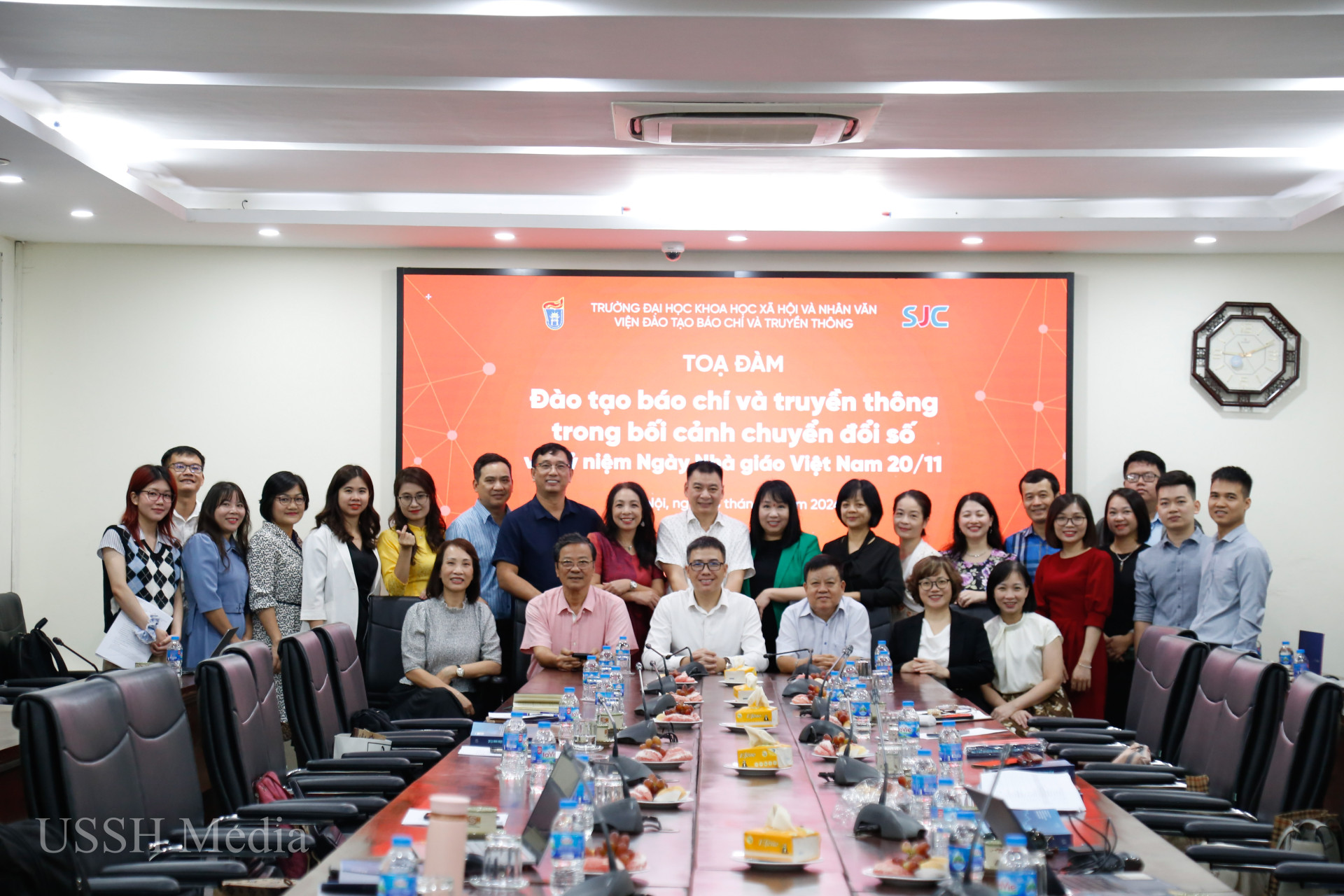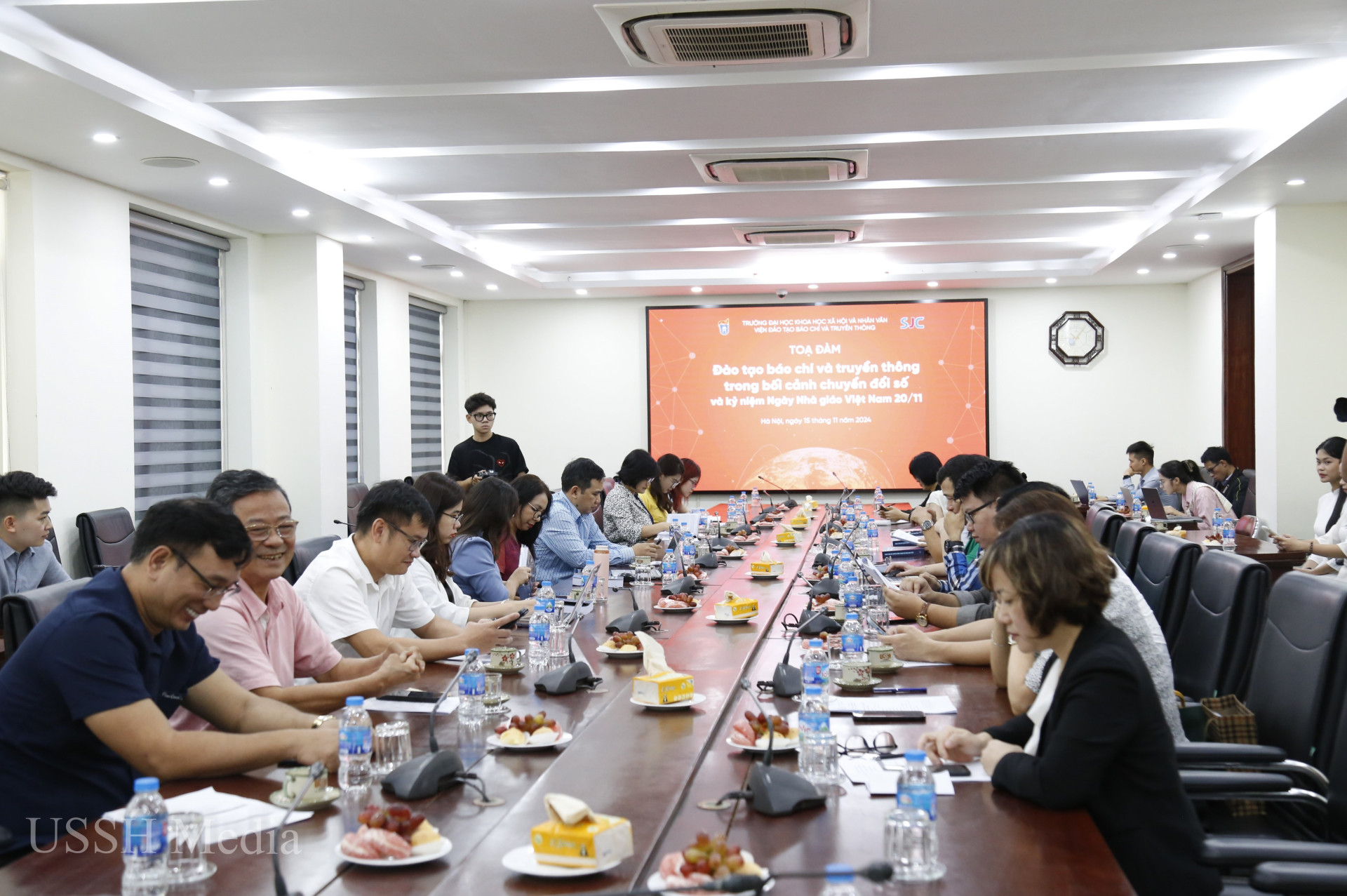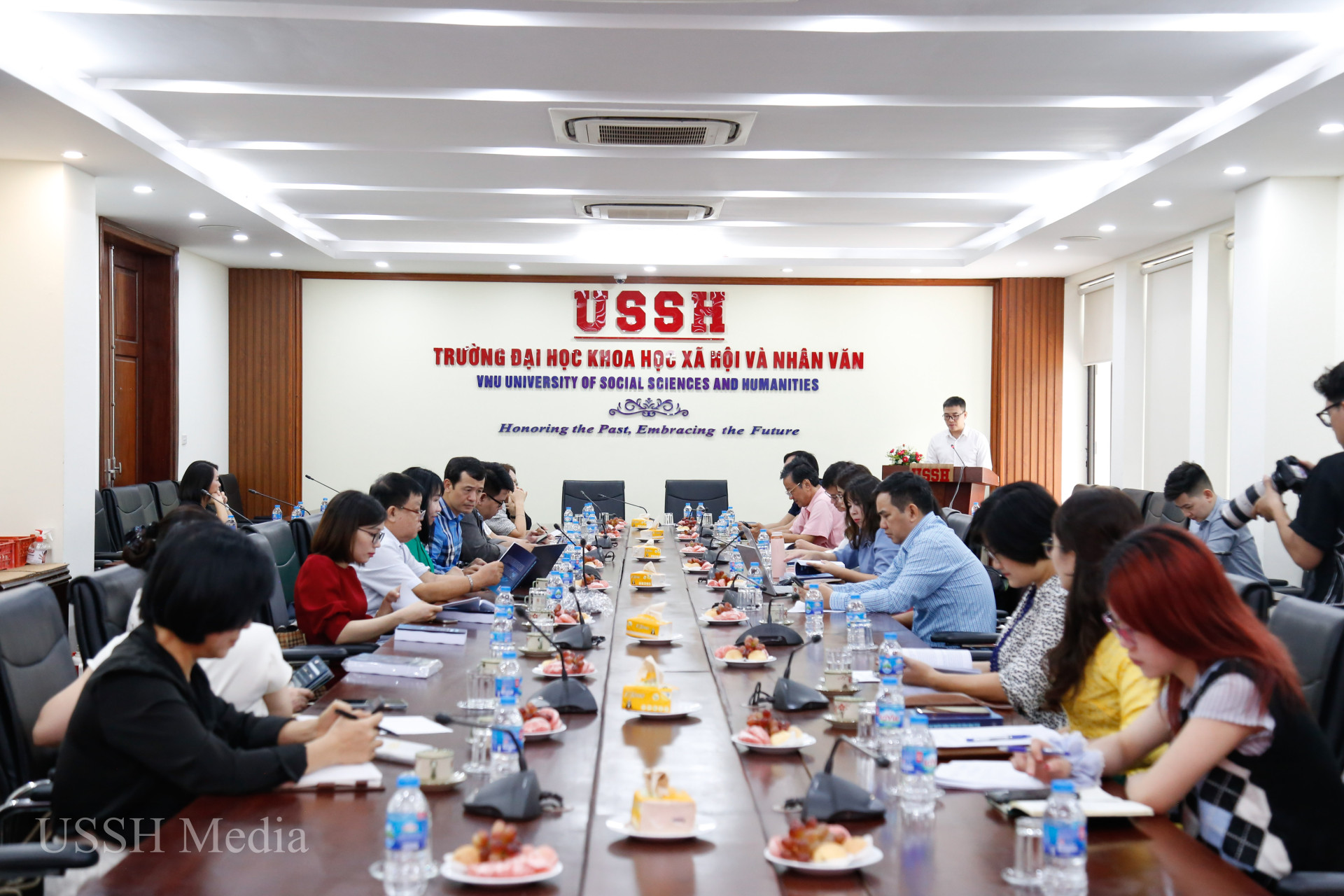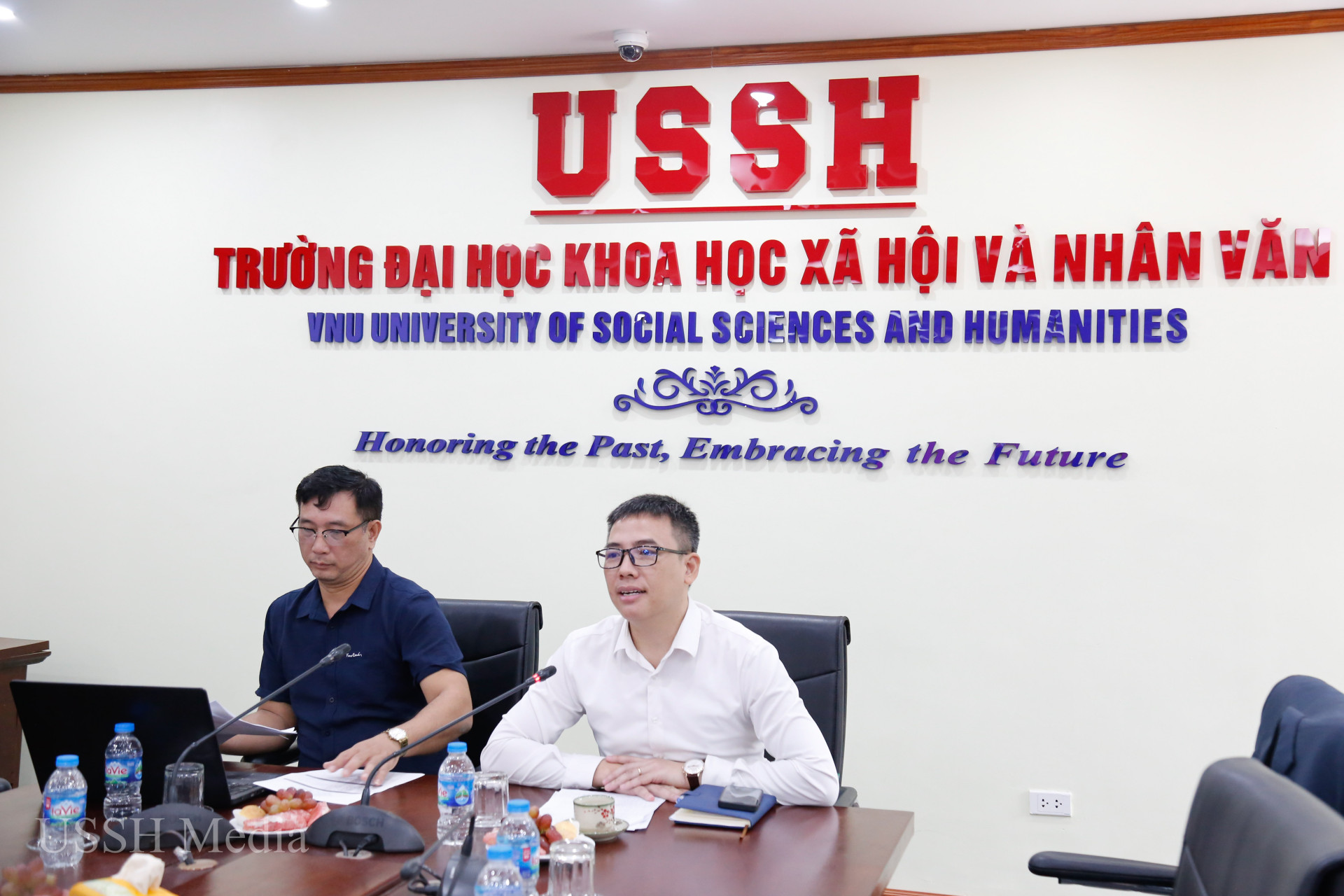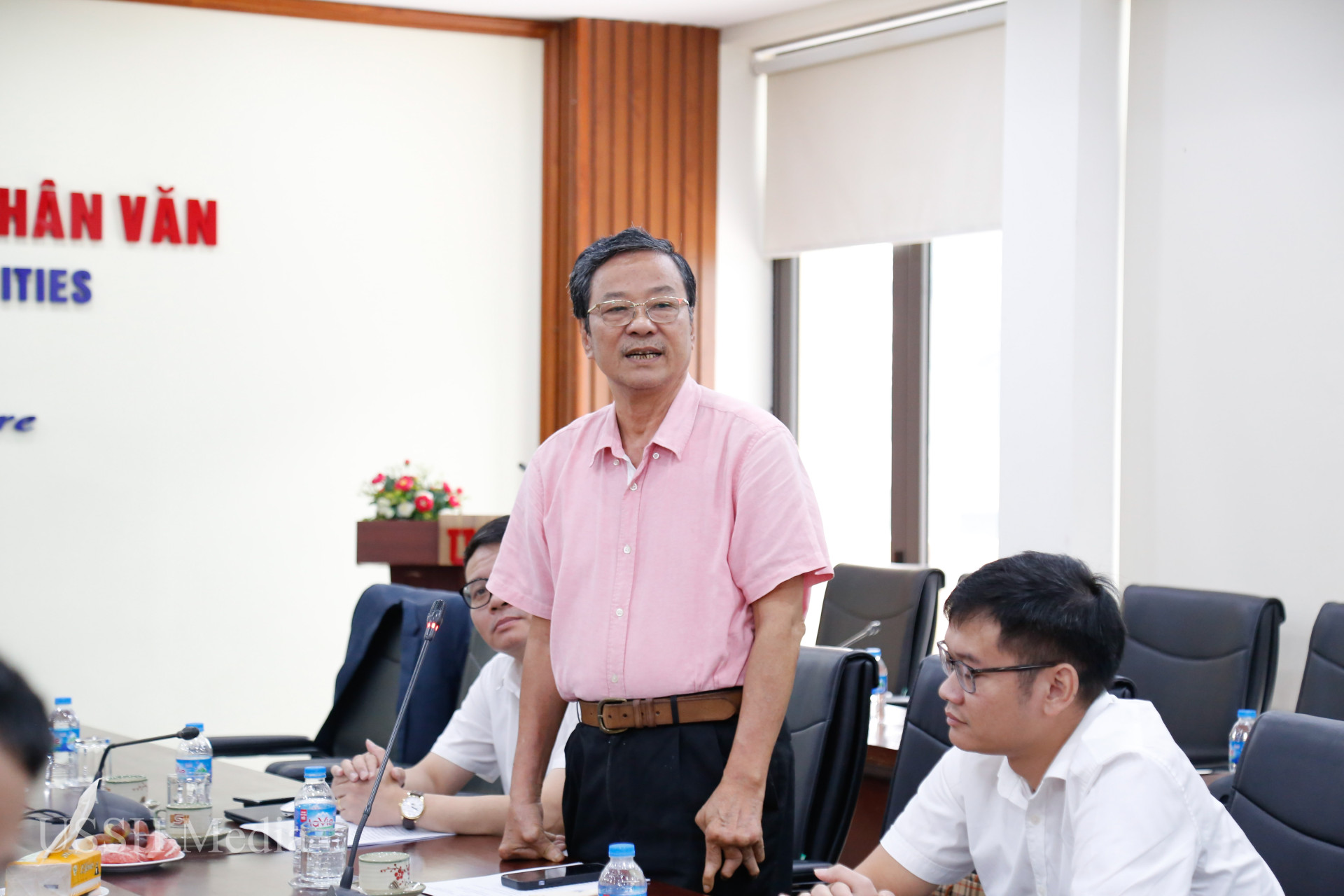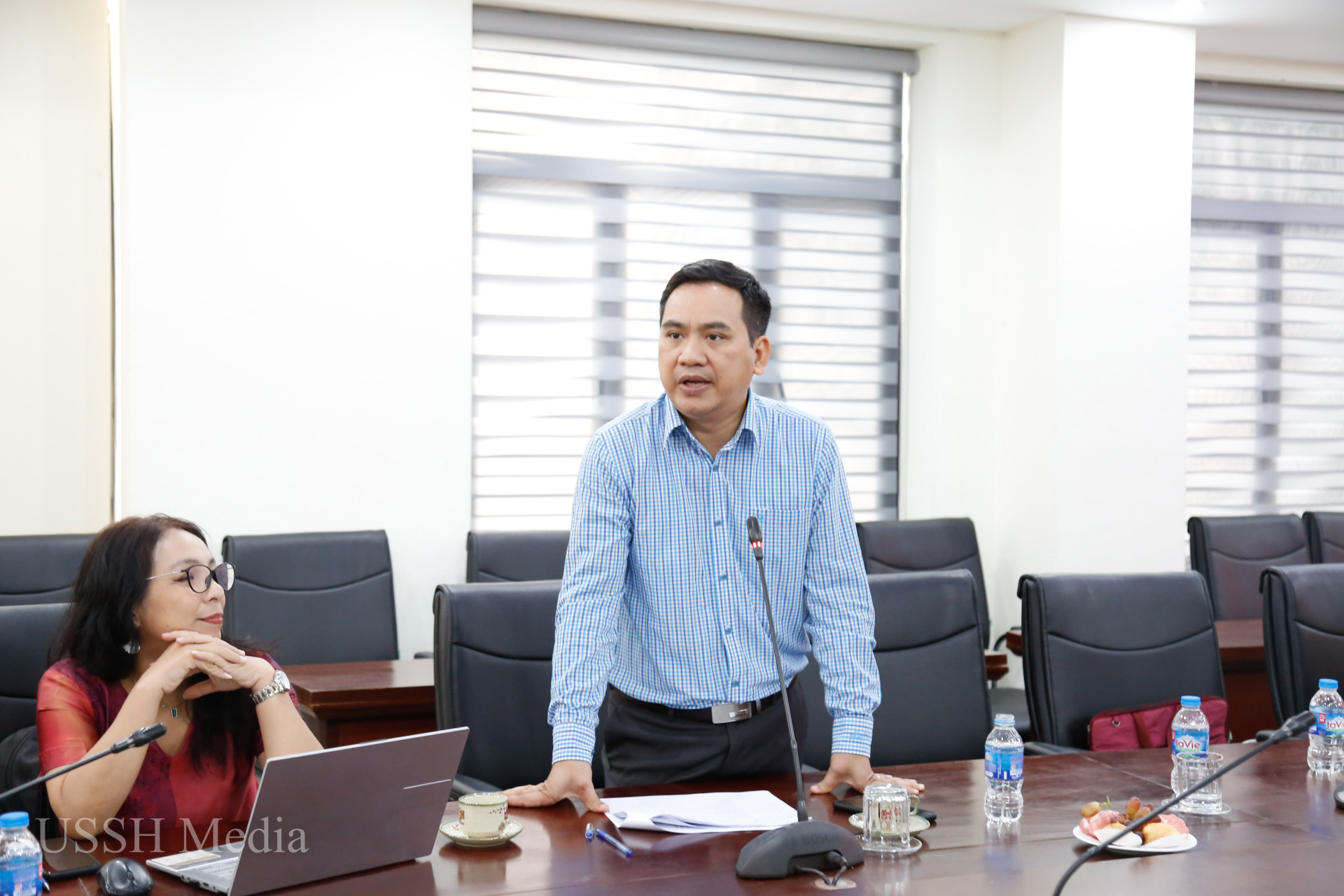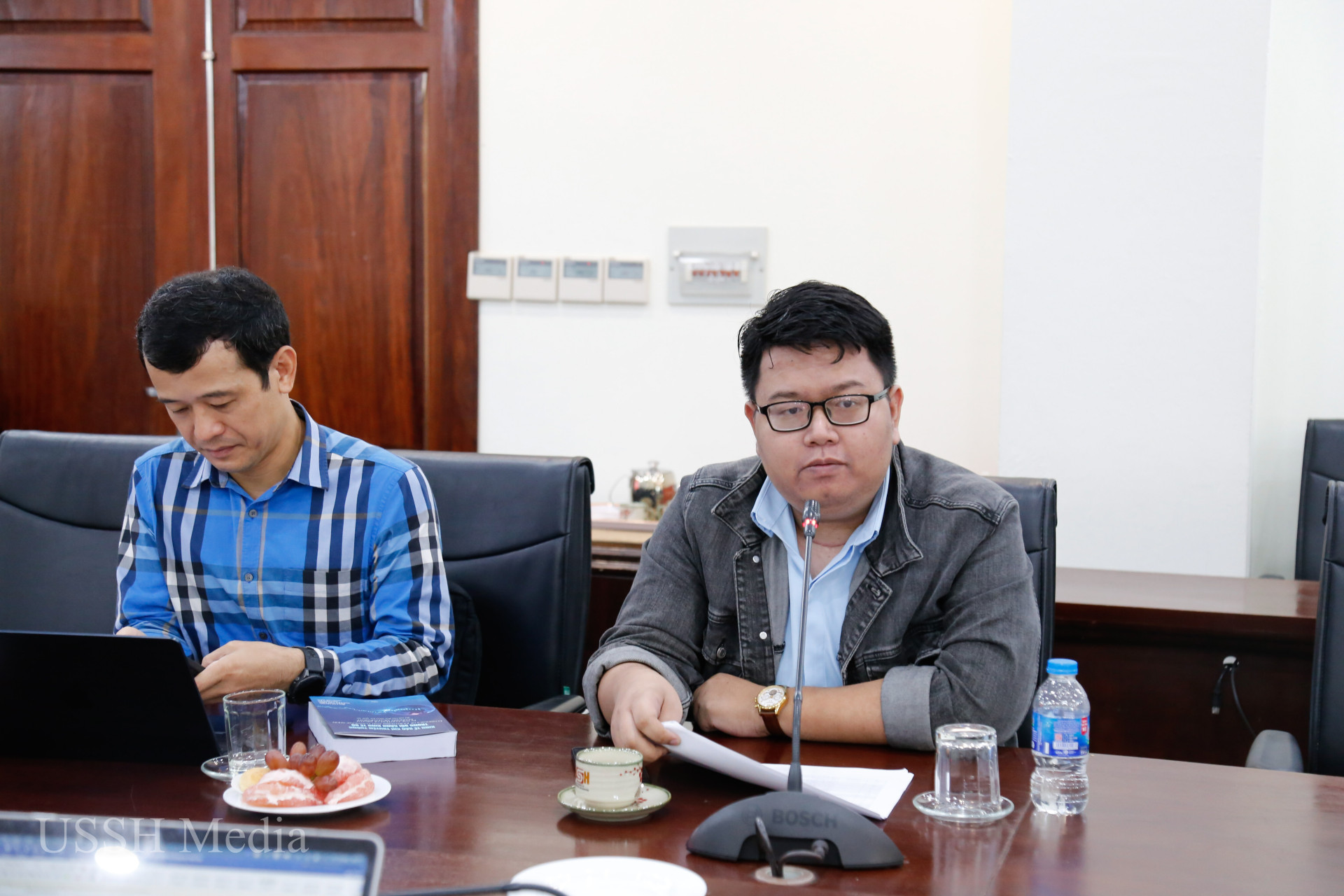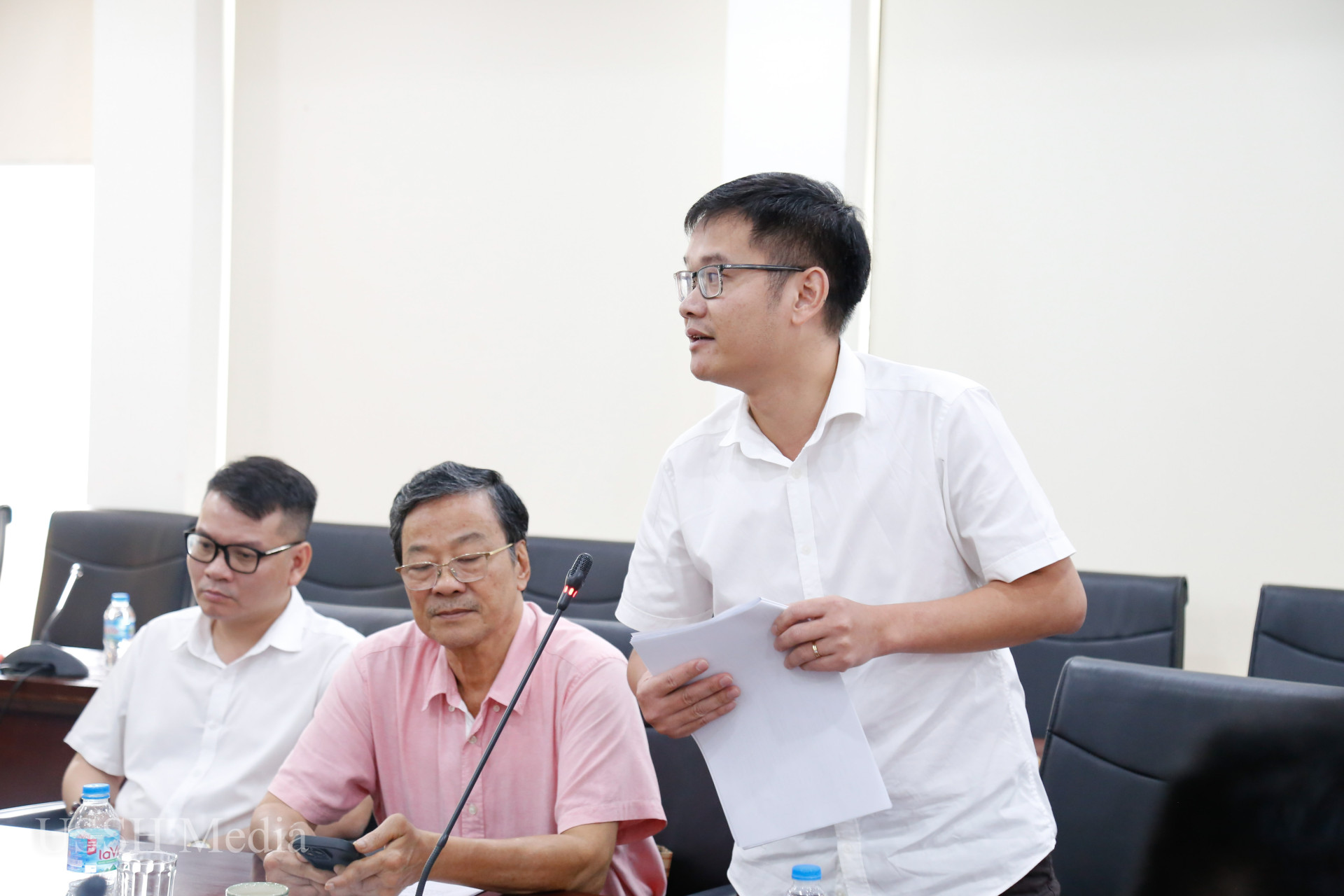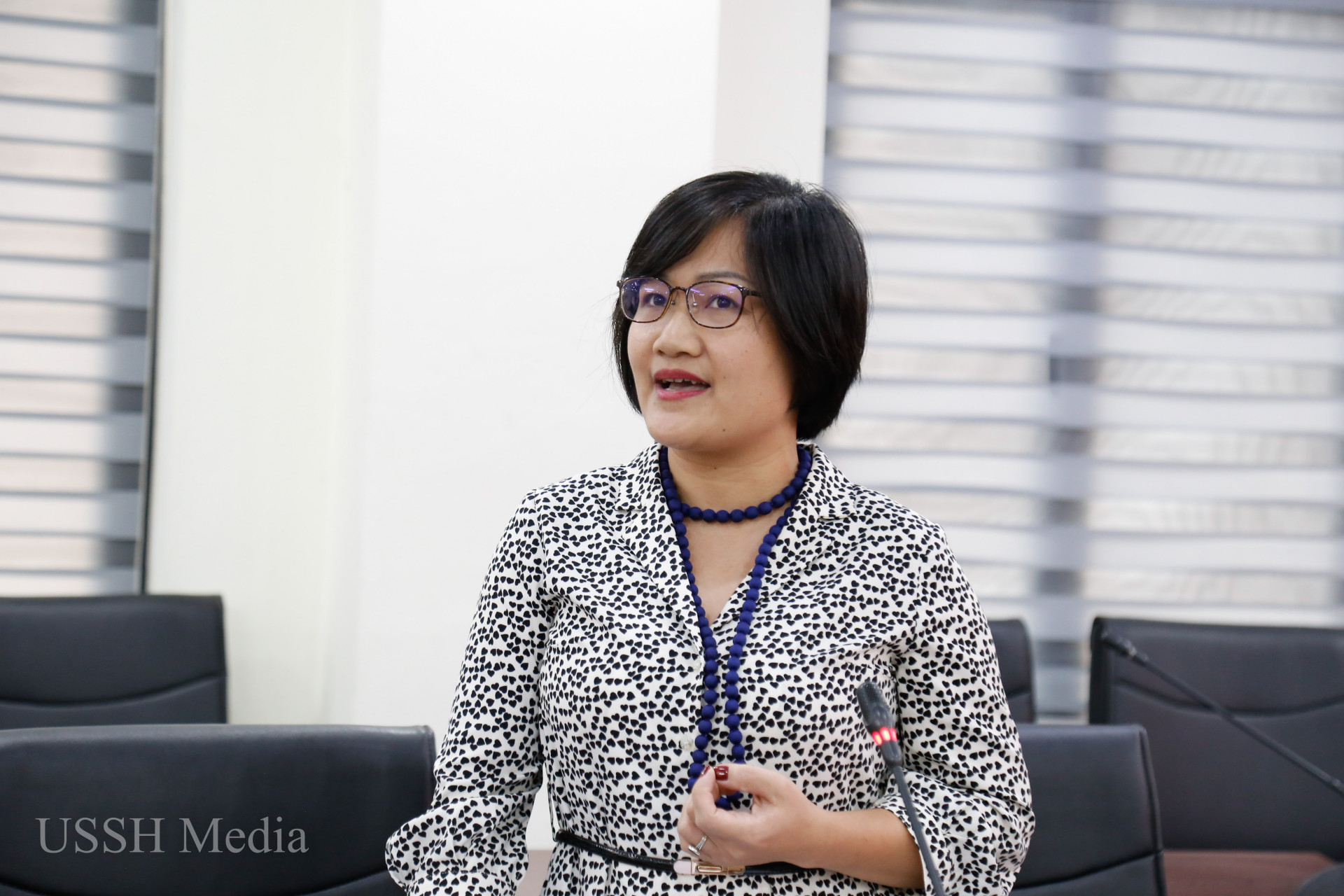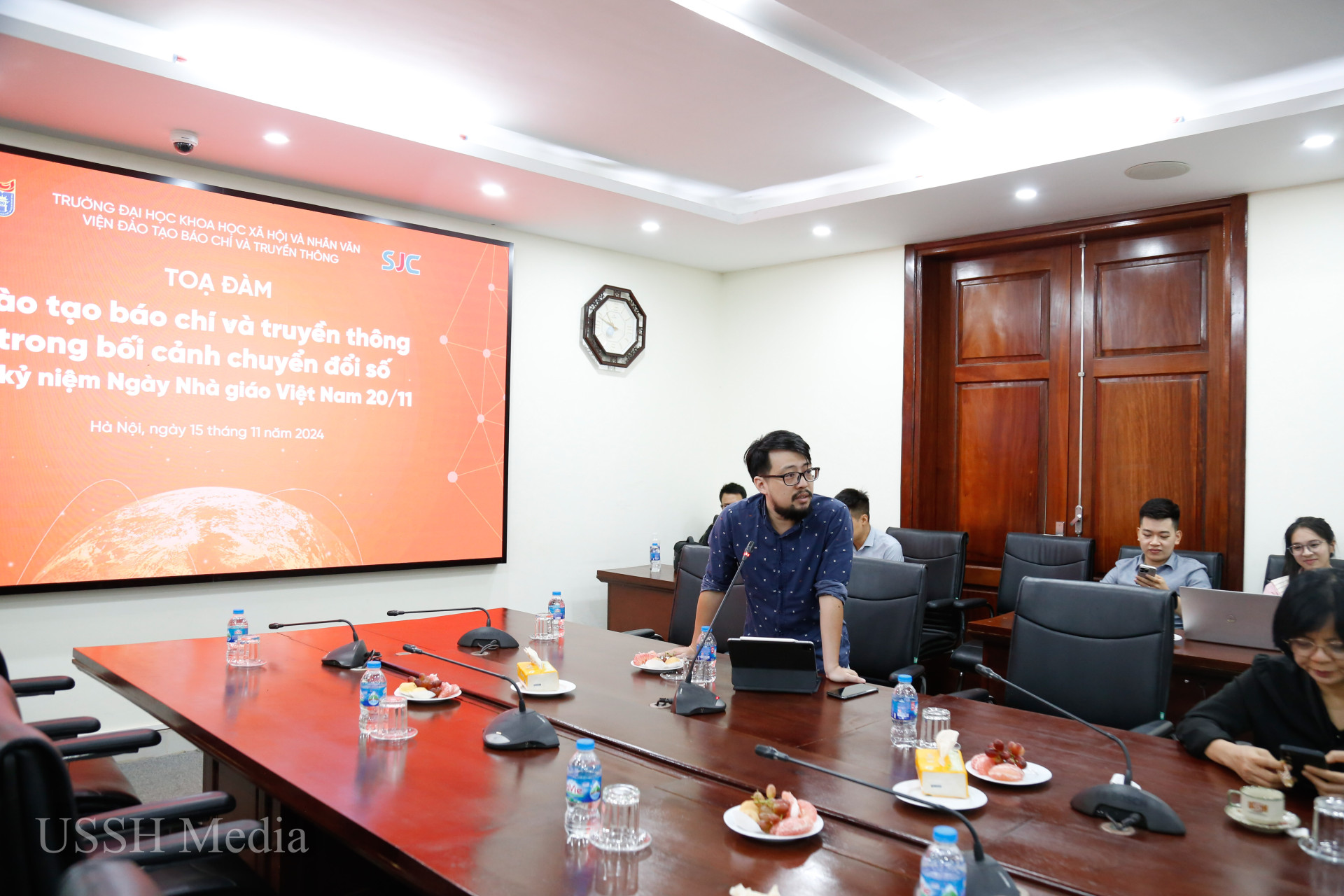The seminar was attended by the leadership, lecturers, researchers, and students of the Institute of Journalism and Communication Training; representatives from journalism and communication training institutions in Hanoi; and experts, researchers, and managers working in state management agencies and media organizations nationwide.
In his opening remarks at the workshop, Dr. Phan Van Kien, Director of the Institute of Journalism and Communication Training (ISTC), University of Social Sciences and Humanities, extended his best wishes for health, success, and happiness to the distinguished delegates and faculty members on the occasion of the 42nd anniversary of Vietnamese Teachers' Day, November 20th. The support of the esteemed faculty members, especially the visiting lecturers who are journalists and experts in the fields of journalism and communication, has been a crucial factor in the Institute's success and reputation throughout the past academic year.
Dr. Phan Van Kien emphasized: In the Resolution of the 13th National Congress of the Communist Party of Vietnam, one of the main tasks assigned by the Government to the Ministry of Information and Communications is to lead the development of the Digital Transformation Strategy for Journalism until 2025 and orientation until 2030. The Digital Transformation Strategy for Vietnamese Journalism has a strong impact on the entire national press system, both in terms of professional practices, state management, and journalism training and research. In addition, the rapid development of technology, the emergence and participation of AI in all aspects of social life, has posed significant challenges to the training of human resources in journalism and communication. The Institute of Journalism and Communication Training has a tradition and has affirmed its position as one of the leading units in providing in-depth, systematic training in journalism and communication, currently offering two majors: Journalism and Public Relations. Besides continuously innovating its training programs and integrating modern, highly applicable modules, the Institute is developing a plan to launch a new training program: Multimedia Communication. “Therefore, at today’s conference, we very much hope to hear many shared opinions, exchanges, and suggestions to help the Institute continue to innovate and improve its training programs to meet the needs of practice in the context of digital transformation,” Dr. Phan Van Kien expressed.
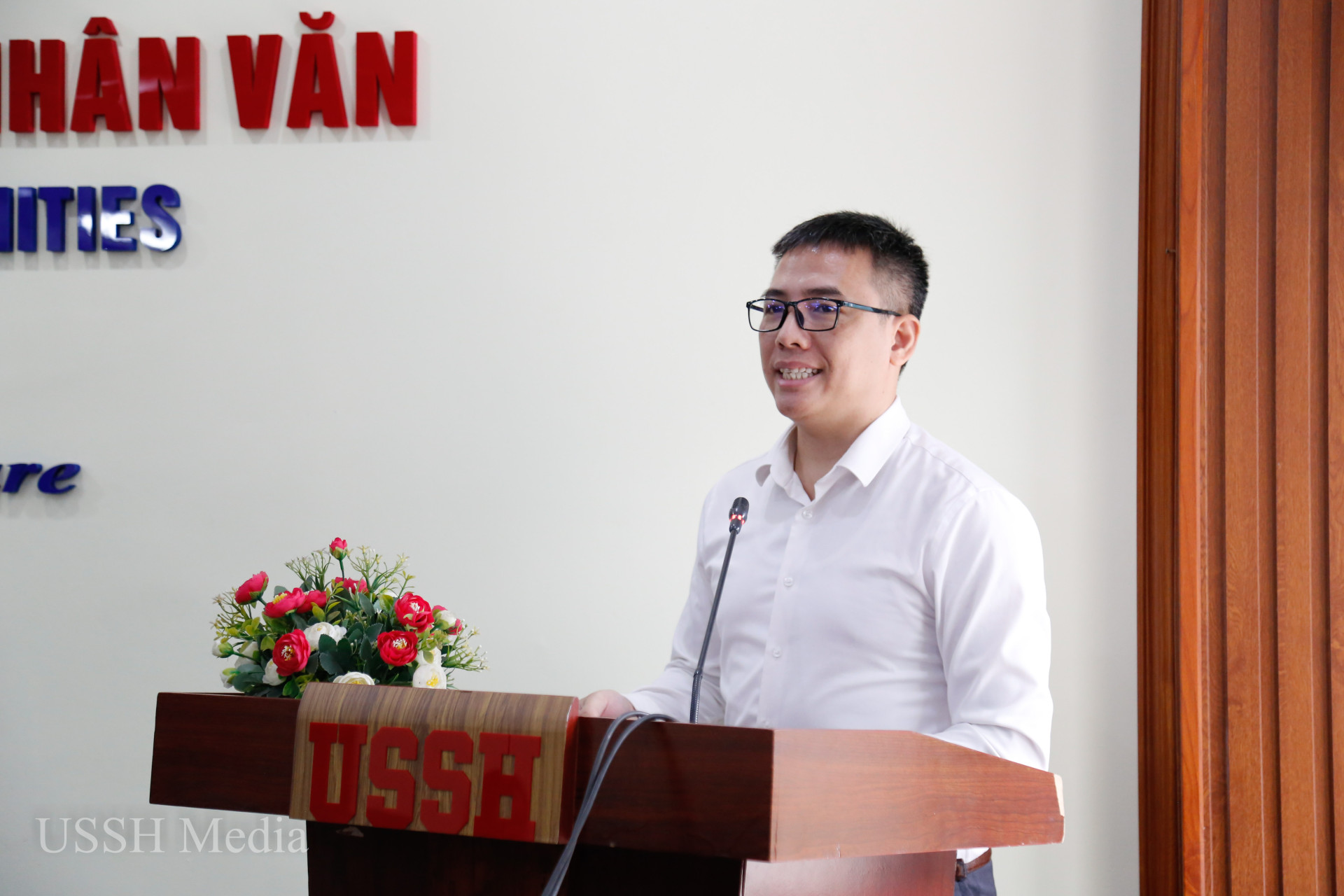
Dr. Phan Van Kien speaks at the seminar.
Dr. Do Anh Duc and Dr. Phan Van Kien chaired the seminar.
The seminar heard many opinions and discussions, focusing on key issues such as: Policies and strategies for journalism and media training in the context of digital transformation in journalism; the current state of journalism and media training in the context of digital transformation in the world and in Vietnam; issues related to professional training, equipping journalists and media professionals with foundational knowledge, especially ethics and law; and the need for innovation in teaching and training methods in the context of digital transformation.
Dr. Tran Thi Tri (working at the Voice of Vietnam) shared: In recent years, digital transformation in all fields, including journalism and media, has been discussed extensively. Everyone understands the requirements of digital transformation, the importance of digital technology, and digital capabilities in the development of any field. However, the actual and effective implementation of digital transformation in practice is still quite limited.
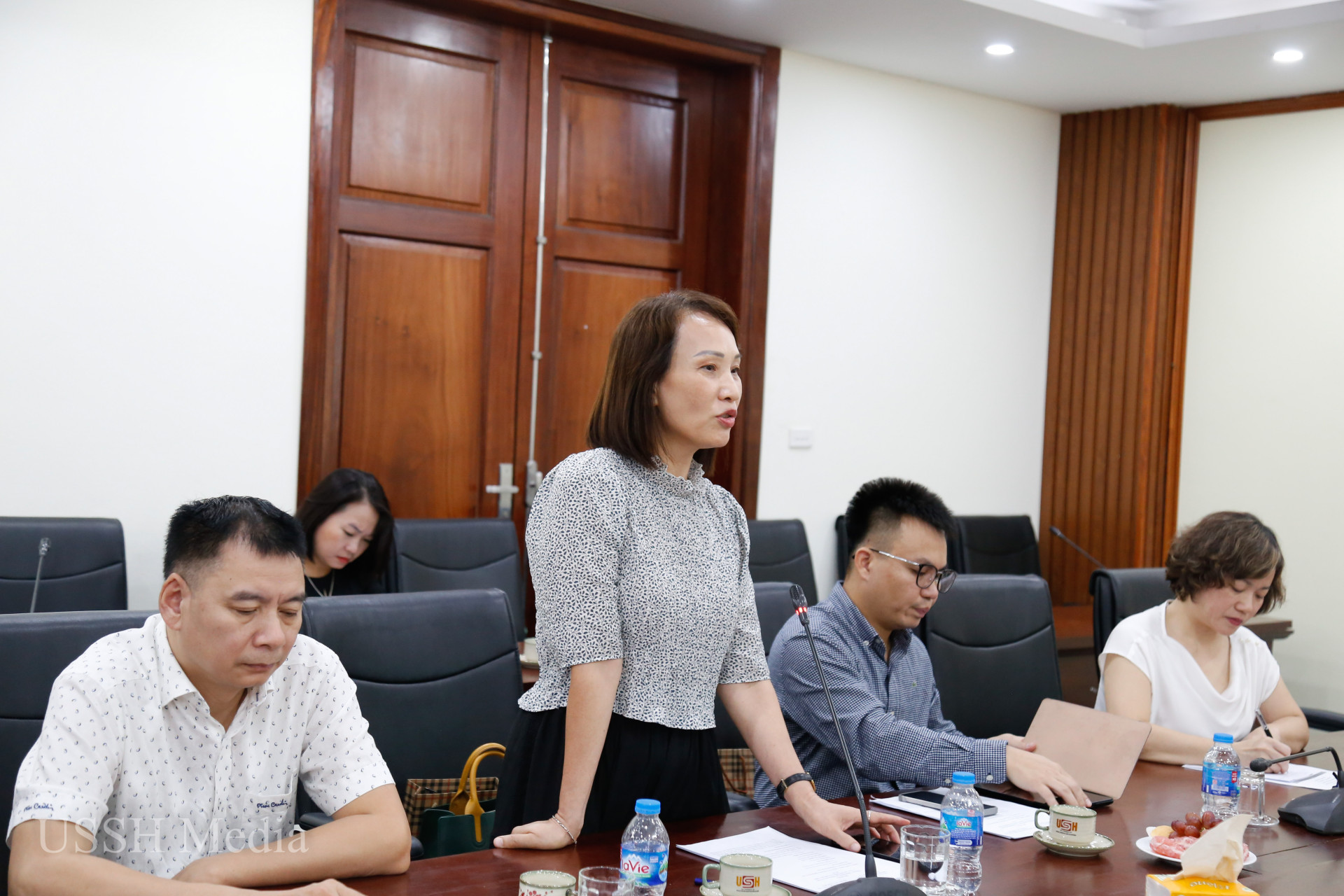
According to Dr. Tran Thi Tri: The University of Social Sciences and Humanities has effectively played its role in training high-quality human resources and advising on policies for ministries and agencies in the field of journalism and communication. However, in the face of major changes in the domestic and international context, the training institution also needs to innovate to keep up with trends. The training program needs to be regularly reviewed to update new modules, enhance practical skills, and focus on training specific skills such as writing, editing, and interviewing skills so that students can confidently participate in the global labor market with increasingly high demands.
Sharing the same viewpoint as Dr. Tran Thi Tri, Dr. Dong Manh Hung, Head of the Editorial Secretariat of the Voice of Vietnam (VOV), also emphasized that a common situation today is that newly graduated students have good knowledge but lack many skills to meet the practical requirements of the job. Therefore, I hope that training institutions will focus on expanding links with units, organizations, and businesses managing and producing in the field of journalism and media so that students have opportunities for practical training and internships while still studying in university.
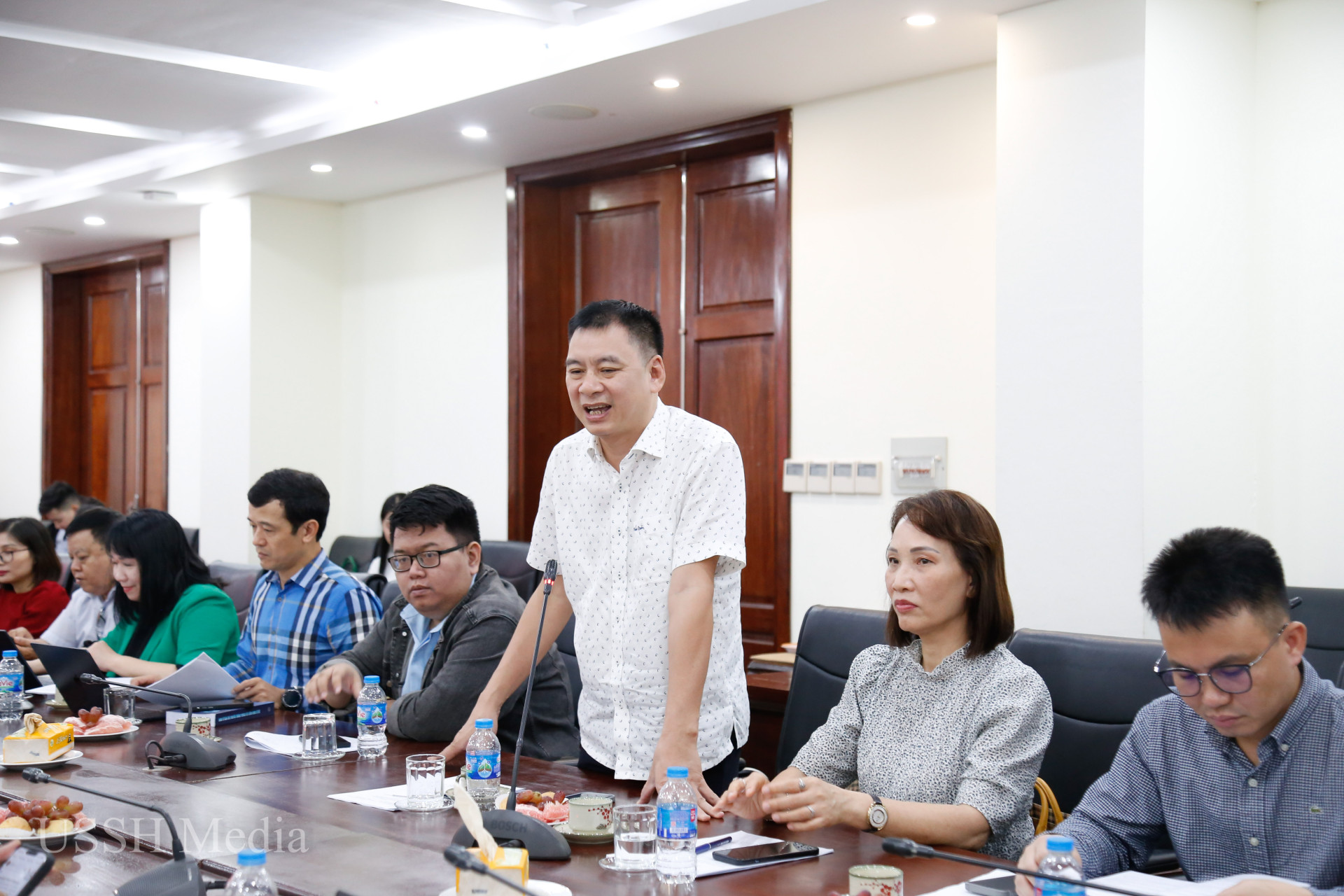
Associate Professor Dr. Nguyen Van Dung (Academy of Journalism and Communication), with many years of experience in training in the field of journalism and communication, has made specific suggestions on strengthening professional training and practical knowledge for the teaching staff in journalism and communication: The school could create conditions for staff to directly participate in "real-world" work at a large media organization applying digital transformation. This way, they can gain the most practical, vivid, and up-to-date knowledge to share with colleagues and students.
Journalists currently working at news agencies, media outlets, and organizations that provide internships, practical training, and recruitment opportunities for students have offered very specific analyses of the strengths and weaknesses of today's students in the face of the ever-changing demands of the labor market, while also proposing numerous solutions for training institutions.
Journalist Tran Anh Tu (Deputy Editor-in-Chief of the Information and Communication Magazine, Ministry of Information and Communications) emphasized: Technology changes every hour, and we must constantly learn to update. However, journalism training should not be about chasing those changes, because the core of a journalist must still be a foundation of knowledge and journalistic thinking. Therefore, the training program still needs to equip students with very systematic and in-depth knowledge. The Institute of Journalism and Communication Training at VNU-USSH has done very well in this regard. However, more investment in equipment is needed so that students can immediately practice the knowledge they learn. A dedicated podcast and YouTube channel should be created so that students can upload their completed work. Short-term training courses should be offered to equip students with additional skills (graphic design, voice-over, etc.) to meet the practical needs of society, trends, and the visual and auditory tastes of the new generation of readers.
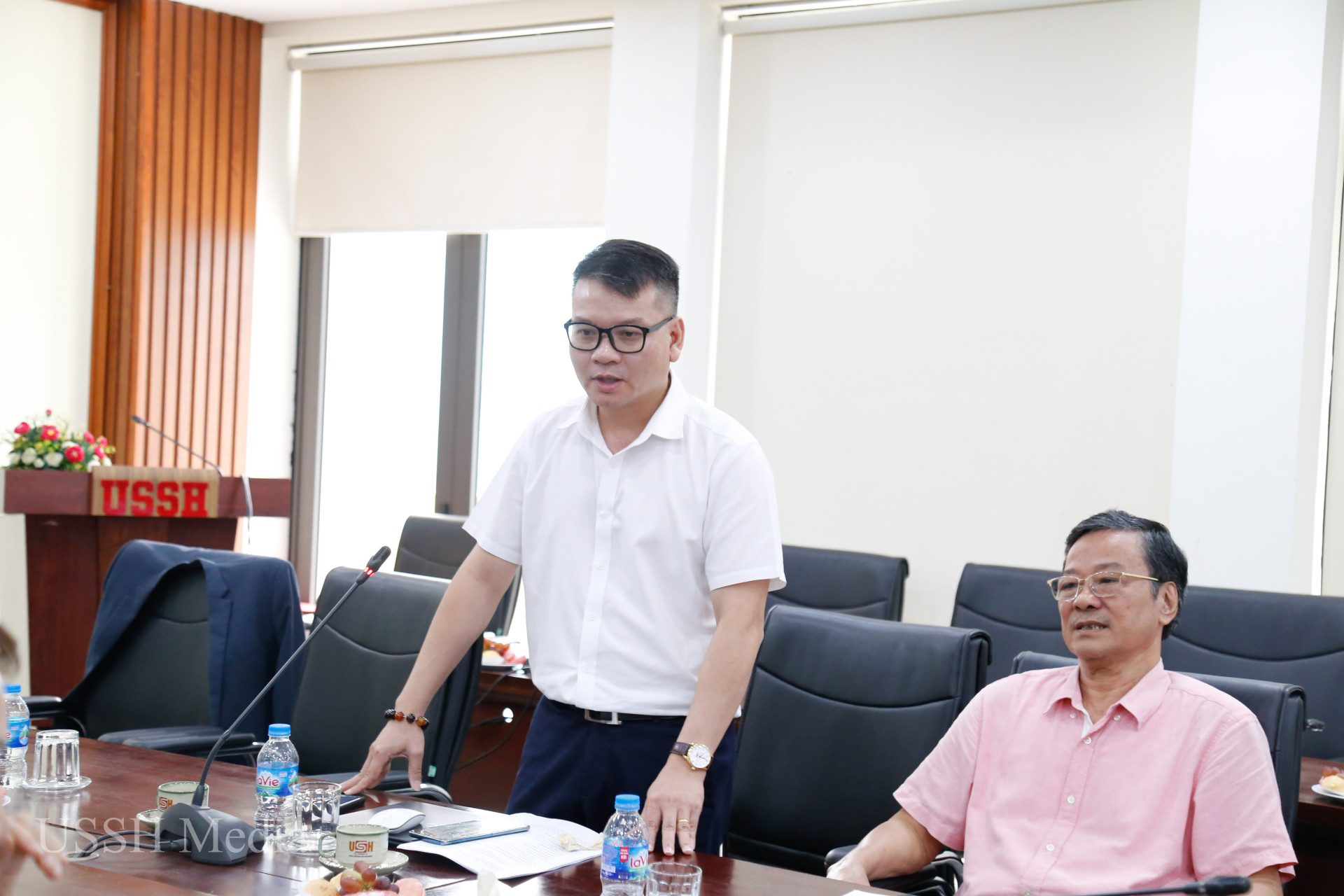
Journalist Le Bao Trung (Head of the Science, Technology and Education Department, Dan Tri Online Newspaper) shared: In the current context, with the pressure to be self-reliant and fierce competition, Dan Tri Newspaper, like other media organizations, needs to recruit personnel, even young people and recent graduates, who possess comprehensive multimedia skills such as: editing, filming, on-location reporting, and especially the ability to withstand pressure. Current students are knowledgeable and adapt quickly to new environments, but they lack practical skills and are weak in multimedia. Therefore, we hope that in the future, the university can increase the number of practical courses so that students are not overwhelmed when entering the labor market and have the opportunity to be recruited by large news agencies.
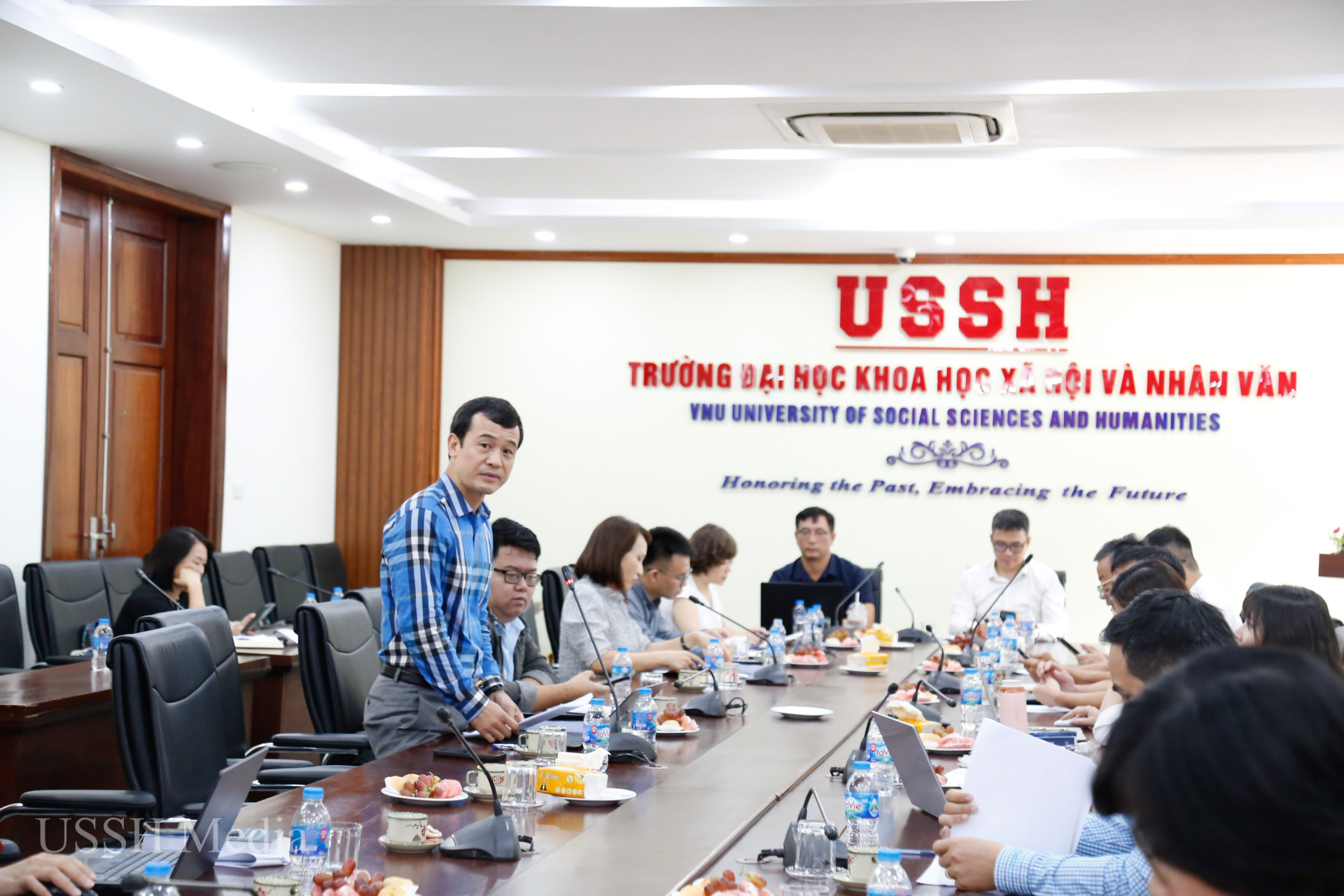
Journalist Do The Dung (Deputy Head of the Electronic Department, Hanoi Moi Newspaper) emphasized that the most important thing is for journalists to build the message, while technology is merely a form, a tool to convey the message to the public. Therefore, to deliver accurate and insightful messages to the public, we need journalists who are highly skilled, ethical, and properly trained.
Mr. Nguyen Le Dinh Quy (VTC Academy) highly appreciated the idea of developing a Multimedia Communication training program with many new, attractive, and up-to-date contents that meet the requirements of practice. The editorial board could consider increasing the number of credits for some practical and skills-training modules.
Journalist Dao Hung Cuong (Electronics and Applications Magazine) emphasized the need for innovative teaching methods, with lecturers boldly assigning group projects to students and encouraging them to immediately apply their learned knowledge to real-world situations: creating a short report on a social issue, writing content to be published on a media channel that attracts the most readers, etc.
Ms. Le Thi Thom (National Academy of Public Administration) speaking at the seminar.
Journalist Nguyen Phong Anh (Economic and Urban Newspaper) speaks at the seminar.
Concluding the seminar, Dr. Phan Van Kien once again expressed his sincere gratitude to the experts, journalists, and scientists who attended and contributed invaluable opinions. The analyses of theoretical and practical perspectives on journalism and communication training in the context of digital transformation presented by the experts at today's seminar not only helped the Institute's leadership build specific goals, tasks, and solutions to further improve the quality of human resource training in journalism and communication in the new context, but the experts also unanimously affirmed that in the context of digital transformation, journalism and communication training must constantly innovate and update, but cannot deviate from core values and identity. With that spirit, the Institute's leadership will seriously consider all contributions to further adjust and innovate the existing curriculum and finalize the new curriculum to be included in the admissions plan of the University of Social Sciences and Humanities.
